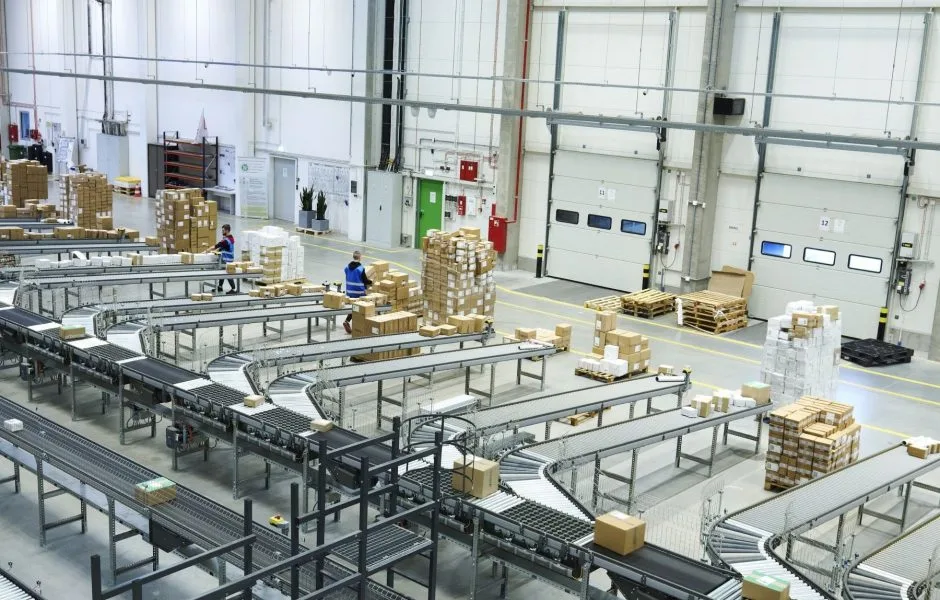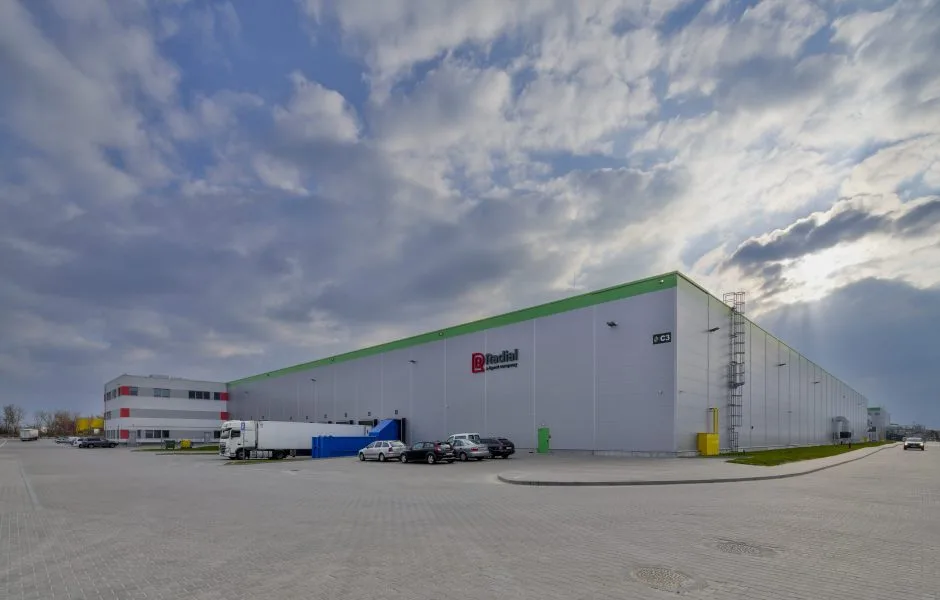Outsourcing Fulfillment Logistics: Streamlining Your E-commerce Operations

Efficient fulfillment logistics are essential for e-commerce success. With growing consumer demand for fast, reliable delivery, optimizing these processes is crucial to staying competitive. This article explores their importance and the benefits of outsourcing to streamline operations and meet evolving customer expectations.
Efficient fulfillment logistics ensure smooth order processing, precise inventory management, and fast delivery. In e-commerce, where speed and convenience set businesses apart, streamlined logistics boost customer satisfaction and loyalty. Every stage—from warehousing to shipping—shapes the overall experience and directly impacts business success.
Outsourcing fulfillment logistics means collaborating with third-party providers to handle warehousing, order processing, and shipping. This strategy lets e-commerce businesses tap into external expertise and infrastructure, freeing them to focus on product development, marketing, and customer service. By delegating fulfillment tasks, companies can streamline operations, cut costs, and scale efficiently to meet growing demand.

The rise of outsourced fulfillment logistics
The exponential growth of e-commerce has revolutionized consumer behavior, reshaping the retail landscape and intensifying the demand for streamlined fulfillment processes. As online shopping continues to gain momentum, businesses are facing unprecedented challenges in managing the complexities of order fulfillment.
E-commerce has added complexity to logistics, requiring multi-channel inventory management and adaptable delivery speeds. Traditional in-house fulfillment often falls short, causing inefficiencies, bottlenecks, and poor customer experiences.
In response to the growing complexities of e-commerce logistics, outsourcing fulfillment has emerged as a strategic solution for businesses seeking to enhance efficiency, scalability, and agility. By partnering with specialized fulfillment providers, companies can tap into a wealth of expertise, infrastructure, and technology tailored to the demands of modern e-commerce.
Outsourced fulfillment providers offer comprehensive solutions encompassing warehousing, order processing, inventory management, and shipping, allowing businesses to offload the logistical burdens and focus on core competencies.
Moreover, outsourcing provides flexibility and scalability, enabling businesses to adapt quickly to fluctuations in demand without incurring the overhead costs and operational constraints associated with maintaining in-house fulfillment capabilities.
Role of third-party logistics (3PL) providers in outsourced e-commerce fulfillment logistics
Third-Party Logistics (3PL) providers play a pivotal role in outsourced e-commerce fulfillment logistics, serving as strategic partners that specialize in managing various aspects of the supply chain on behalf of e-commerce businesses. Their role encompasses a range of critical functions aimed at optimizing efficiency, reducing costs, and enhancing the overall customer experience.
- Warehousing and Distribution: Fulfillment companies offer warehousing facilities strategically located to minimize shipping times and shipping costs. They manage inventory storage and storage space, organization, and distribution, ensuring that products are readily available for order fulfillment and shipment.
- Order Fulfillment: From order processing to packaging and shipping, 3PL providers handle the entire fulfillment process with precision and speed. They utilize advanced technologies and streamlined workflows to ensure accurate picking, packing, and dispatch of customer orders, optimizing delivery times and customer satisfaction.
- Inventory Management: 3PL providers leverage sophisticated inventory management systems to track stock levels, monitor product movements, and prevent stockouts or overstock situations. By maintaining optimal inventory levels and implementing efficient replenishment strategies, they help businesses minimize inventory holding costs while maximizing availability.
- Transportation and Shipping: Utilizing their network of carriers and transportation partners, 3PL providers coordinate the transportation of goods from warehouses to distribution centers and fulfillment centers and ultimately to end customers. They negotiate favorable shipping rates, optimize shipping routes, and provide real-time tracking and visibility throughout the delivery process.
- Technology Integration: 3PL providers invest in state-of-the-art technology platforms and systems to streamline operations, enhance visibility, and improve communication between stakeholders. This includes order management systems, warehouse management systems, and transportation management systems that integrate seamlessly with e-commerce platforms and other business systems.
- Scalability and Flexibility: One of the key advantages of partnering with 3PL providers is the ability to scale operations quickly in response to fluctuations in demand or seasonal peaks. 3PLs offer flexible solutions that can adapt to evolving business needs, whether it involves ramping up capacity during busy periods or scaling back during quieter times.
In summary, 3PL providers play a multifaceted role in outsourced fulfillment logistics, offering e-commerce businesses the expertise, infrastructure, and resources needed to streamline operations, optimize efficiency, and deliver exceptional customer experiences. By entrusting fulfillment logistics to capable third-party partners, businesses can focus on core competencies, drive growth, and stay competitive in today’s fast-paced e-commerce landscape.
Understanding outsource fulfillment logistics
Outsource fulfillment logistics, refers to the strategic practice of entrusting the management of various aspects of the supply chain to external service providers.
In defining specific requirements and expectations for outsource fulfillment logistics, businesses lay the groundwork for successful partnerships and optimal outcomes. Clear communication and alignment on key parameters are essential to ensure that the chosen 3PL provider can effectively meet the needs and objectives of the business. Key considerations in defining requirements and expectations include:
- Service Scope: Clearly outline the scope of services to be outsourced, including warehousing, efficient order fulfillment, shipping, and any additional value-added services required.
- Performance Metrics: Define measurable performance metrics and service level agreements (SLAs) to evaluate the effectiveness and efficiency of the 3PL provider. This may include metrics such as order accuracy, on-time delivery, inventory accuracy, and customer satisfaction.
- Technology Integration: Specify requirements for technology integration to ensure seamless communication and data exchange between the business’s eCommerce platform, inventory management systems, and the 3PL provider’s systems.
- Scalability and Flexibility: Assess the 3PL provider’s ability to scale operations and adapt to changing business needs, including seasonal fluctuations in demand or expansion into new markets.
- Quality Control: Establish protocols for quality control and ensure compliance with industry regulations and standards, particularly for sensitive or regulated products.
- Communication Channels: Define communication channels and protocols for regular updates, issue resolution, and performance reviews to maintain transparency and accountability throughout the partnership.
By defining specific requirements and expectations upfront, businesses can mitigate risks, foster productive partnerships, and maximize the benefits of outsourced fulfillment logistics.

Benefits of Outsourcing Fulfillment Logistics
Outsourcing fulfillment logistics offers numerous benefits for businesses, enabling them to optimize operations, enhance efficiency, and drive growth. Below are key advantages associated with leveraging outsourced fulfillment logistics:
Ability to adapt to fluctuations in demand
Outsourcing fulfillment logistics provides businesses with the flexibility to scale operations up or down in response to fluctuations in demand. Third-party logistics (3PL) providers can quickly adjust resources, warehouse space, and manpower to accommodate peaks and valleys in order volumes, ensuring seamless order fulfillment and customer satisfaction during busy periods while avoiding unnecessary overhead fulfillment costs during slower times.
Reduction of overhead costs and financial risk
By outsourcing fulfillment logistics, businesses can realize significant cost savings by eliminating the need to invest in warehouse facilities, equipment, labor, and technology infrastructure.
Additionally, 3PL providers often operate on economies of scale, allowing businesses to benefit from lower shipping rates, reduced inventory holding costs, and more efficient order processing, all of which contribute to improved profitability and reduced financial risk.
Focus on core competencies
Outsourcing fulfillment logistics frees up valuable time and resources for businesses to focus on their core competencies and strategic priorities. By entrusting logistics operations to specialized 3PL providers, businesses can redirect their attention to areas such as product development, marketing, customer service, and market expansion initiatives, thereby driving innovation, differentiation, and competitive advantage in the marketplace.
Access to expertise and technology
3PL providers offer specialized expertise and advanced logistics technology, giving businesses access to best practices, industry insights, and innovative solutions. Outsourcing fulfillment logistics provides cutting-edge tools like warehouse management systems, predictive analytics, and real-time tracking—resources that are costly to develop in-house. This enhances efficiency, accuracy, and overall customer experience.
Outsourcing fulfillment logistics is a strategic decision that requires careful consideration of various factors to ensure successful partnerships and optimal outcomes. Below are key considerations businesses should take into account when evaluating and selecting a third-party logistics provider:
How to Choose a Third-Party Logistics Service Provider
When selecting a 3PL provider, businesses should consider the following evaluation criteria:
- Experience and Expertise: Assess the 3PL provider’s industry experience, track record, and expertise in handling similar types of products and order volumes.
- Infrastructure and Facilities: Evaluate the provider’s warehouse facilities, technology infrastructure, and geographic coverage to ensure they can meet current and future needs.
- Service Offerings: Determine if the provider offers a comprehensive range of services, including warehousing, order fulfillment, shipping, returns processing, and value-added services.
- Scalability and Flexibility: Confirm the provider’s ability to scale operations quickly to accommodate fluctuations in demand or business growth.
- Cost Structure: Compare pricing models, fees, and terms to ensure alignment with budgetary requirements and avoid hidden costs.
- References and Reviews: Seek references from current or past clients and research online reviews and testimonials to gauge the provider’s reputation and reliability.
Importance of reputation, reliability, scalability, and technology capabilities
The reputation, reliability, scalability, and technology capabilities of a 3PL provider are crucial considerations for successful outsourcing of fulfillment logistics:
- Reputation: A provider’s reputation reflects its reliability, trustworthiness, and ability to deliver on promises. Choose a provider with a solid reputation for quality service and customer satisfaction.
- Reliability: Dependability and consistency in meeting service level agreements (SLAs) and deadlines are paramount. Ensure the provider has robust logistics processes and protocols in place to maintain reliability and minimize disruptions.
- Scalability: The ability to scale operations in response to changing business needs is essential for long-term success. Select a provider with the capacity and flexibility to accommodate growth and seasonal fluctuations in demand.
- Technology Capabilities: Advanced logistics technology, such as warehouse management systems (WMS), order management systems (OMS), and real-time tracking tools, enhances efficiency, visibility, and accuracy. Choose a provider with state-of-the-art technology capabilities to optimize operations and improve the overall customer experience.
Communication and alignment of expectations through definitions
Clear communication and alignment of expectations are critical for a successful partnership with a 3PL provider. Establishing definitions and protocols for key terms and metrics can help ensure mutual understanding and accountability. Key areas for communication and alignment include:
- Service Level Agreements (SLAs): Define specific performance metrics, such as order accuracy, on-time delivery, and inventory accuracy, along with corresponding targets and penalties for non-compliance.
- Communication Channels: Establish regular communication channels and protocols for updates, issue resolution, and performance reviews to maintain transparency and alignment throughout the partnership.
- Expectations: Clearly articulate expectations regarding service levels, responsiveness, communication frequency, and reporting formats to avoid misunderstandings and ensure alignment between the business and the 3PL provider.

Radial Europe fulfillment site Warsaw
Conclusion
Outsourcing fulfillment logistics is not merely a tactical decision but a strategic imperative for e-commerce businesses looking to gain a competitive edge in today’s rapidly evolving marketplace. By entrusting logistics operations to trusted third-party partners, businesses can unlock new levels of efficiency, scalability, and customer satisfaction, allowing them to focus on driving innovation, growth, and long-term success.
Radial, a leading e-commerce 3PL provider, excels in innovation and excellence in outsourced fulfillment logistics. With a strong record in reliability, scalability, and technology, Radial helps businesses streamline operations, boost efficiency, and enhance customer experiences. Partnering with Radial grants access to industry expertise, cutting-edge technology, and a commitment to excellence—driving sustainable growth in the digital age.
